When Germans go to the polls on February 23 to elect a new parliament, the economy will be a top concern. US President Donald Trump's upcoming "storm" of import tariffs will add to the economic woes.
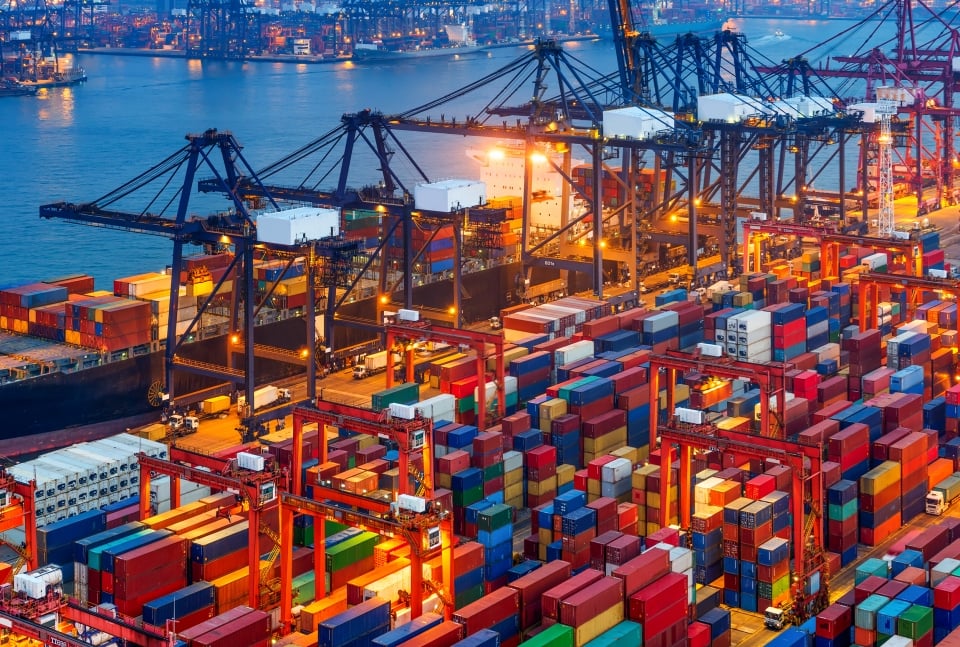 |
| Exports have long been the main driver of Germany's growth. (Source: Shutter Stock) |
Germany - the world's third-largest economy - has barely grown since the Covid-19 pandemic, shrinking both in 2023 and last year - its first two-year decline since the 2000s.
According to the International Monetary Fund (IMF) forecast, this year, the European economic "locomotive" will grow at 0.3%.
Major economic problems
Between 2005 and 2019, Germany's export-oriented economy grew strongly, fueled by cheap natural gas from Russia and strong exports to the Chinese market.
Exports have long been a key driver of Germany's growth. According to World Bank figures, exports of goods and services accounted for more than 43% of the country's gross domestic product (GDP) in 2023 - the largest share among major economies.
Cars and spare parts, machinery and chemical products were Berlin's main exports last year, according to the statistics agency.
The German economy has benefited greatly at a time when China is developing rapidly, with consumers in the country of a billion people favoring cars imported from Berlin.
But in recent years, China’s economic growth has slowed, while its automakers, such as BYD and Xpeng, have been gaining market share from Western rivals, making German cars less of a top choice for Chinese consumers.
“To some extent, the German auto industry has become a victim of its own success,” Kirkegaard said. “Chinese electric car manufacturers have been quick to ‘catch the wave’ of the electric car market and are gradually replacing the established brands.”
Meanwhile, German energy-intensive industrial companies are paying more. Since Russia launched a special military operation in Ukraine in February 2022, Germany has had to "turn its back" on Moscow by buying gas from farther away. As a result, many German companies have cut production, cut staff, and even closed down.
“We are in the midst of deindustrialization,” said Lars Kroemer, chief economist at Gesamtmetall. “In addition to high energy costs, high taxes and a lot of regulations and procedures have also had a heavy impact on the country’s industry.”
More broadly, strict limits on government borrowing – known as the “debt brake” – have held back much-needed investment in Europe’s “engines”, including infrastructure and online public services, said Achim Wambach, president of the Leibniz Centre for European Economic Research (ZEW).
“We are not yet digital. Our administrative burden is higher… than in other countries,” the ZEW President stressed.
Jacob Kirkegaard, a senior fellow at the Peterson Institute for International Economics, a Washington-based think tank, said Germany's unreformed economy is a problem.
Economic reforms to boost growth are vital to the prosperity of this country's current and future generations, especially at a time when the number of retirees is growing.
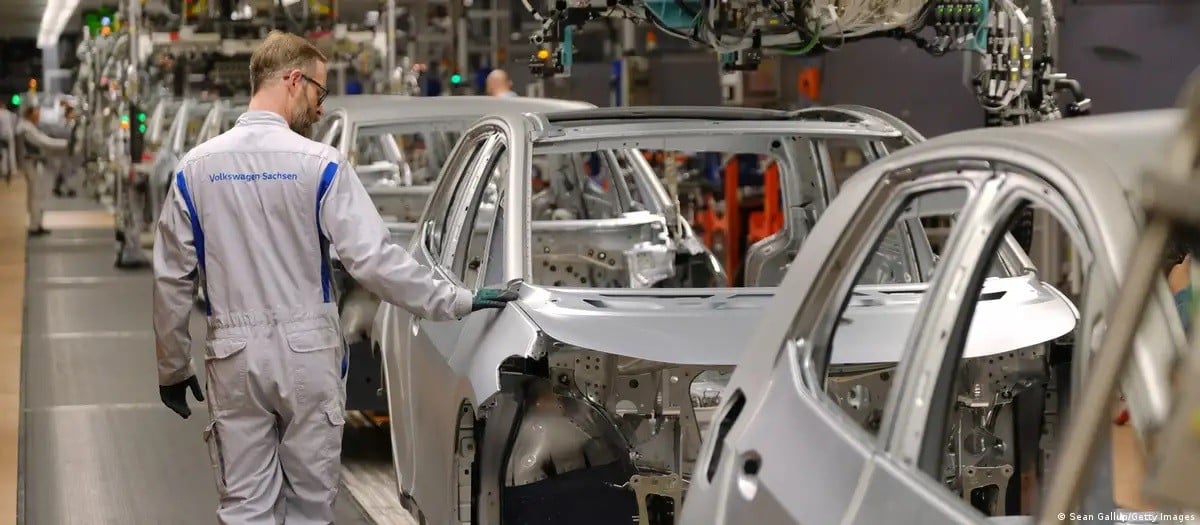 |
| Tariffs on cars would particularly hurt German exporters, as the US is their largest market, accounting for 10% of Berlin's total exports. (Source: Getty Images) |
Trump's tariff attack
The above series of problems have caused the German economy to struggle for a long time and President Trump's recent tariffs are like "adding fuel to the fire".
During his election campaign, Mr. Trump threatened to impose higher tariffs on goods imported into the U.S. Since taking office in January 2024, he has demonstrated his willingness to act, for example by announcing a 25% tariff on all steel and aluminum imports into the world’s largest economy, effective next March.
The US President's tariff "storm" then continued to spread to a number of other industries such as imported cars, semiconductor chips and pharmaceuticals.
Tariffs on cars would particularly hurt German exporters because the US is their biggest market, accounting for 10% of Berlin's total exports.
ZEW President Achim Wambach noted that the impact would be felt most clearly by some German car exporters.
“This is bad news for Germany's already struggling auto industry,” he said.
Across industries, about 1.2 million jobs in Germany depend, directly or indirectly, on exports to the US, according to Prognos, a Swiss research firm. That represents 2.6% of total employment in the country.
And even if Germany doesn't directly bear the brunt of tariffs on its own goods, it could still feel the pain of tariffs imposed on other countries.
For example, Mr. Trump has also announced a 25% tariff on all imports from Mexico and Canada, and an additional 10% tariff on Chinese goods. But some German automakers, including Volkswagen, export cars to the US from their factories in Mexico. So Volkswagen’s factories in Mexico will be affected.
“The global economy is like a network, so if you impose a tariff on one place, more or less the whole network will feel it,” said Michael Bohmer, chief economist at Prognos.
He added that Mexico, Canada and China could redirect exports from the United States to new markets to avoid Mr. Trump’s tariffs, potentially putting those products in direct competition with German goods in those markets.
And of course, boosting the growth of the European “locomotive” in the next few years and beyond is not just a way to deal with Mr. Trump’s tariffs.
The country’s entire business model may need to be overhauled. If Germany doesn’t “renew” its old industries – such as cars, machinery and steel – and focus on new technologies like artificial intelligence (AI) over the next decade, it will no longer be the world’s third-largest economy, Bohmer said.
Source: https://baoquocte.vn/nen-kinh-te-duc-dang-lao-dao-bi-do-them-dau-vao-lua-thue-quan-cua-ong-trump-khong-phai-van-de-duy-nhat-305126.html











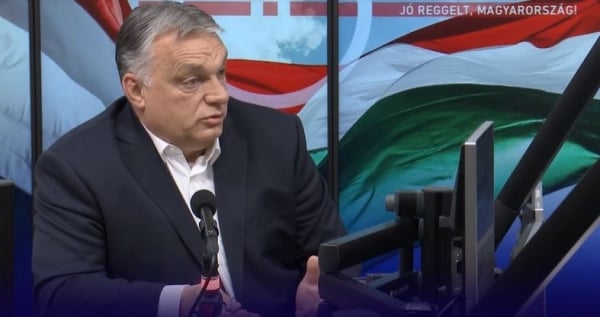



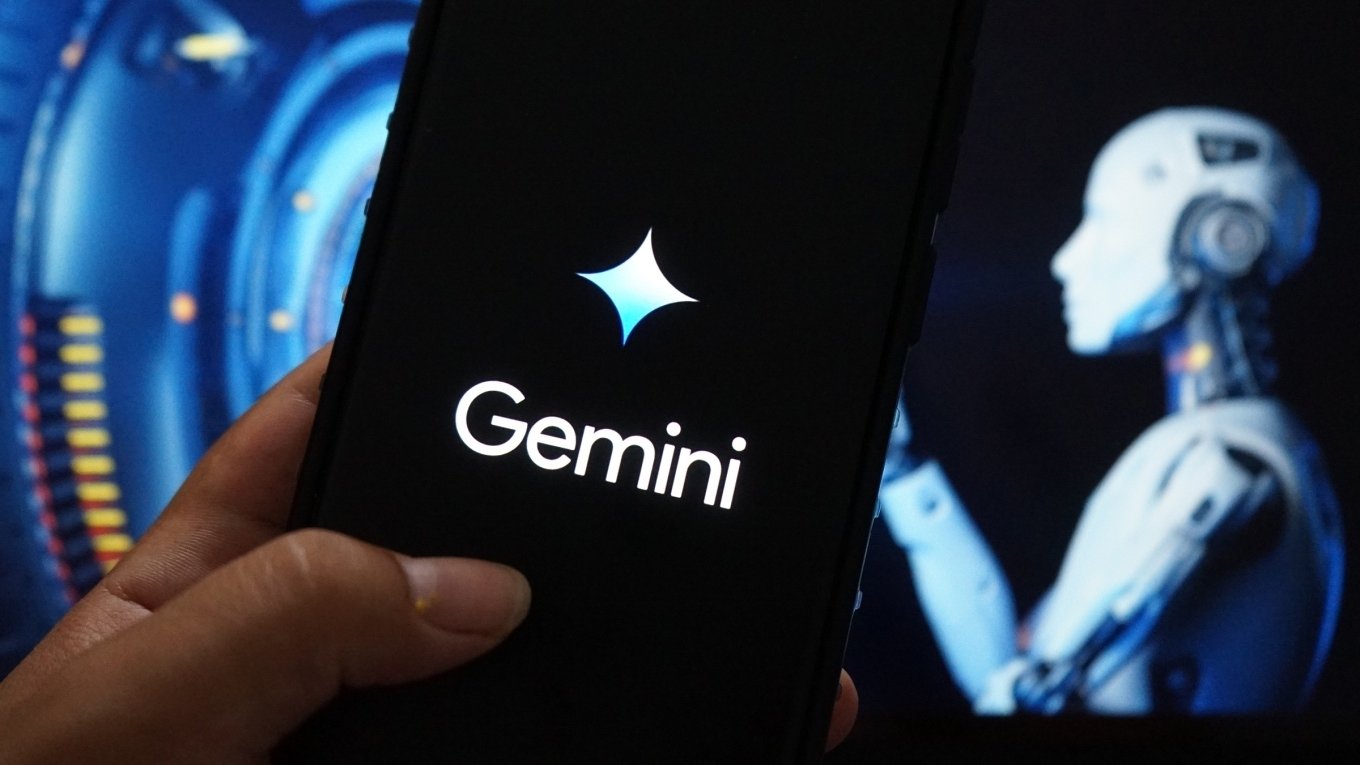

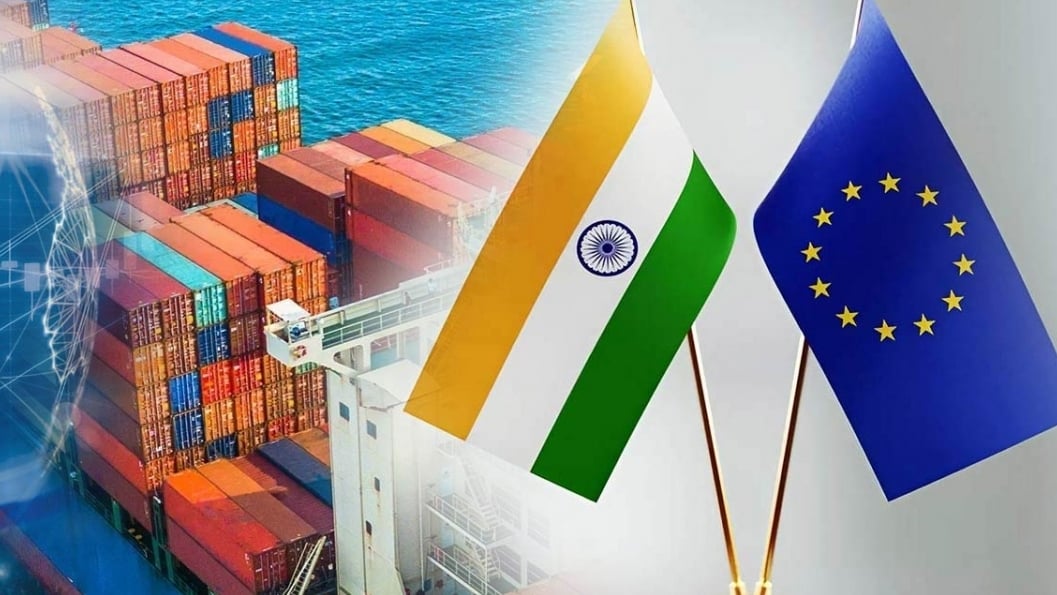













Comment (0)